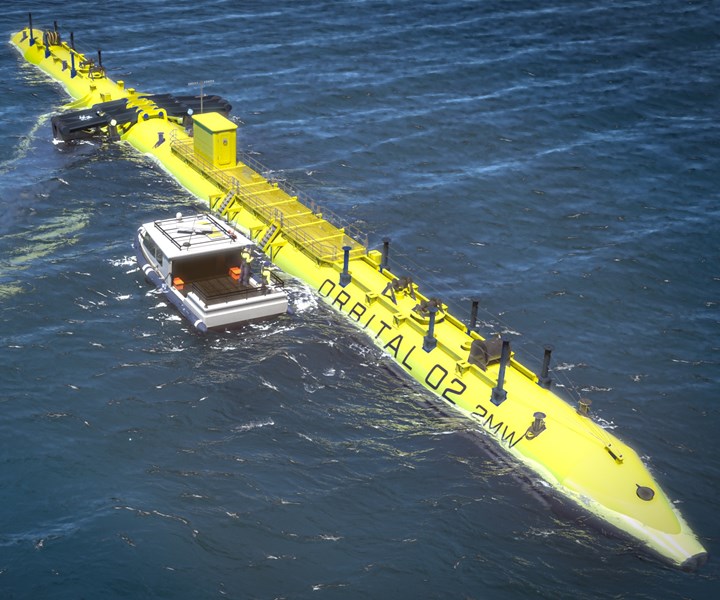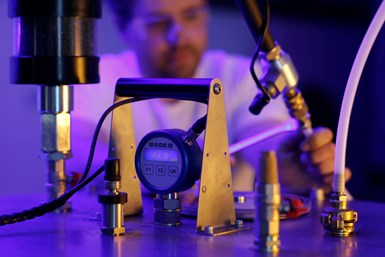AC Marine & Composites to build composite blades for 2-MW tidal turbine
The 2-megawatt tidal turbine will feature four 10-meter composite blades, and is expected to be the most powerful tidal turbine to date.

The O2 2-megawatt tidal turbine. Source | Orbital Marine Power Ltd.
AC Marine & Composites Ltd. (ACMC; Gospart, U.K.) has been awarded a contract to supply composite blades for floating tidal stream turbine developer Orbital Marine Power Ltd.’s (Orbital; Orkney and Edinburgh, U.K.) first commercial O2 tidal turbine. ACMC will manufacture the blades at its facilities in Gospart, Hampshire, U.K.
According to Orbital, ACMC will build 10-meter composite blades for both of the O2’s twin rotors, with four blades in total, giving the machine a swept area of more than 600 square meters. Orbital says this is the largest ever on a tidal turbine.

Bespoke resin injection machine from AC Marine & Composites. Source | Orbital Marine Power Ltd.
The O2, capable of generating more than 2 megawatts of power from tidal stream resources, will reportedly become the world’s most powerful tidal turbine when it enters operation later next year as part of a long-term project at the European Marine Energy Centre in Orkney, Scotland. Improvements in Orbital’s platform design have allowed for a rotor diameter increase of 4 meters on the company’s previous, record-breaking 2-megawatt SR2000 turbine, and the O2 will be capable of producing electricity for more than 1,700 U.K. homes.
“AC Marine & Composites have an impressive track record in delivering high-quality composites solutions to a range of sectors including marine energy. We are delighted that they are supporting the commercialization of our technology through the O2 project,” says Andrew Scott, CEO of Orbital.
Related Content
-
Evolving natural fiber technology to meet industry sustainability needs
From flax fiber composite boats to RV exterior panels to a circularity model with partnerships in various end markets, Greenboats strives toward its biomaterials and sustainable composites vision in an ever-changing market.
-
European boatbuilders lead quest to build recyclable composite boats
Marine industry constituents are looking to take composite use one step further with the production of tough and recyclable recreational boats. Some are using new infusible thermoplastic resins.
-
Plant tour: BeSpline/Addcomp, Sherbrooke, QC, Canada
Composites automation specialist increases access to next-gen technologies, including novel AFP systems and unique 3D parts using adaptive molds.

.jpg;width=70;height=70;mode=crop)













